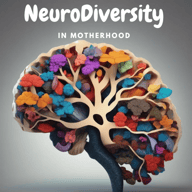How to Effectively Use Dr. Neugarten’s Work in Motherhood for Raising a Neurodiverse Child


Dr Bernice Neugarten’s pioneering research on ageing and the concept of the social clock offers valuable insights that can be applied to the journey of motherhood, particularly when raising a neurodiverse child. By understanding her work, mothers can cultivate a nurturing environment that embraces their children's unique needs while fostering emotional resilience.
Embracing Individuality
One of Neugarten’s central ideas is that societal expectations shape individual experiences and development. For mothers of neurodiverse children, this perspective is essential. Recognizing that each child is on their own timeline allows mothers to embrace their child’s uniqueness fully. Rather than comparing their children to societal norms or “typical” milestones, mothers can validate their child's individual strengths and challenges. This acceptance is key to building a strong foundation for emotional well-being.
Understanding the Social Clock
Dr. Neugarten’s concept of the social clock also provides insight into how mothers can navigate their parenting journey. This framework highlights the importance of timing and societal expectations surrounding milestones such as education, socialization, and independence. For neurodiverse children, it’s crucial to understand that these milestones might look different. Mothers can use this knowledge to build realistic expectations and focus on their child’s progress rather than societal timelines, helping to alleviate feelings of frustration and inadequacy.
Fostering Supportive Relationships
Neugarten emphasized the significance of social connections across the lifespan. In motherhood, particularly when raising a neurodiverse child, strong relationships with family, friends, and support groups are vital. Engaging with other mothers who share similar experiences can provide emotional support, practical advice, and a sense of community. By fostering these relationships, mothers create a network that understands the challenges and triumphs of raising a neurodiverse child, ultimately enhancing their own well-being.
Encouraging Open Communication
Effective communication, another theme in Neugarten’s work, is essential in nurturing a neurodiverse child. Mothers should cultivate an environment where open dialogue is encouraged. This includes not only listening to their child’s feelings and concerns but also articulating their own experiences and emotions. By modeling healthy communication patterns, mothers help their children express themselves and navigate social interactions more effectively.
Prioritizing Well-Being
Finally, Dr. Neugarten’s emphasis on the importance of well-being can guide mothers to prioritize their mental and emotional health. Self-care is crucial; mothers must carve out time for themselves, engage in enjoyable activities, and seek support when feeling overwhelmed. A mentally and emotionally healthy mother is better equipped to support her child through the ups and downs of their neurodiverse journey.
Conclusion
Incorporating Dr. Neugarten’s insights into motherhood can significantly enhance the experience of raising a neurodiverse child. By embracing individuality, understanding the social clock, fostering relationships, encouraging communication, and prioritizing well-being, mothers can create a nurturing and supportive environment. Dr. Neugarten's work reminds us that every journey is unique, and fostering acceptance and understanding is key to thriving in the diverse landscape of motherhood.
